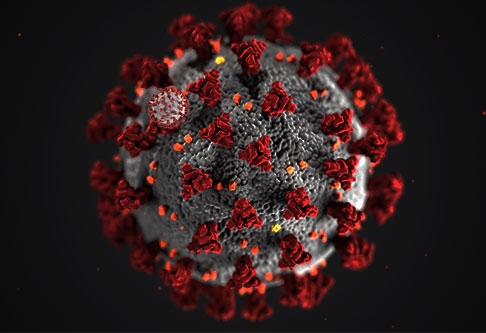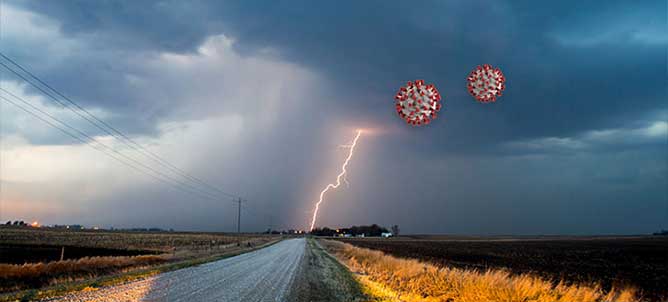Covid under the microscope.

In the recent months, millions of people all over the world have changed their lifestyle and behaviours in an attempt to fight COVID 10.
For climate scientists this has given hope that it could be possible to do the same to fight the Climate crisis.
The natural world fully embraced the effects of lock-down and the drastic reduction in human pace. In China alone, between January & February, NASA and the European Space Agency spotted a significant pollution decrease.
The agencies compared the levels of Nitrogen Dioxide, caused by cars, power-plants and other industrial facilities, on the 23rd Jan and during quarantine between the 10th-25th Feb.
The results showed a significant decrease in the gas, with an estimated reduction of between 10-30% – A startling change.
Then there were all those photos on social media showing wildlife returning to areas where they hadn’t been seen for decades, people could see the Himalayas for the first time in 30 years, and the canals of Venice were clear.
Even more startling, according to calculations done by Marshall Burke of Stanford University, this reduction may have helped save the lives of 77,000 people in China, under 5 and over 70.
Burke goes as far as to state that “Given the huge amount of evidence that breathing dirty air contributes heavily to premature mortality, a natural – if admittedly strange – question is whether the lives saved from this reduction in pollution caused by economic disruption from COVID-19 exceeds the death toll from the virus itself.”
Unfortunately, now as life slowly returns to normal Nitrogen Dioxide levels slowly begin to increase again.
This change has not just been seen in China but across the world – in particular Northern Italy. Lockdown in Northern Italy began on the 9th March. Between 1st Jan – 11th March the European Space Agency noted drastic changes in the levels of Nitrogen Dioxide.
Josef Aschbacher, director of Earth Observation programmes, states, that although we should consider weather factors in this reduction, a large extent can certainly be linked to the Covid-19 lockdown.
Given all of this, it seems this is our opportunity to act.
These drastic changes show how the world CAN mobilise to act on climate change.
Climate change is the real longer-term crisis. The response to the Coronavirus pandemic has shown that with government support it is possible for us to change our ways.
We can only hope that this pandemic will change the way people think and make them realise the huge impact human activity has on our environment.
30 June 2020

